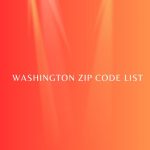Introduction
Understanding the layout and specifics of a city’s zip codes can significantly enhance one’s experience of living or visiting there. Zip codes are more than just a series of numbers; they represent distinct areas with unique characteristics, from residential neighborhoods to commercial hubs. Savannah, Georgia, known for its rich history, stunning architecture, and vibrant culture, is no exception. This guide will delve into the nuances of the Savannah zip code, providing a thorough overview of its different areas and what makes each one special.
History of Savannah Zip Code
Origins and Evolution
The zip code system in the United States was introduced by the USPS in 1963 to improve mail delivery efficiency. Savannah, being one of the oldest cities in the nation, saw its zip codes evolve alongside its growth and development. Initially, zip codes were simply a way to streamline postal services, but they quickly became identifiers for various city sectors.
Changes Over Time
Over the years, Savannah’s zip code boundaries have shifted in response to urban development, population changes, and economic factors. As the city expanded, new zip codes were created to accommodate the growing number of residents and businesses. This evolution reflects the dynamic nature of Savannah’s urban landscape.
Geographical Layout of Savannah
Key Areas and Neighborhoods
Savannah is divided into several key areas, each with its own unique charm and character. From the historic cobblestone streets of downtown to the sprawling suburban neighborhoods, each area offers something different. Key neighborhoods include the Victorian District, Starland District, and Ardsley Park, among others.
Borders and Boundaries
The city’s zip codes are neatly segmented, with clear borders that help in identifying the different regions. These boundaries often align with major roads, natural features, and historical divisions within the city.
Major Zip Codes in Savannah
Downtown Savannah (31401)
Downtown Savannah, with the zip code 31401, is the heart of the city. This area is renowned for its historic squares, beautiful parks, and bustling River Street. It’s a hotspot for tourists and locals alike, offering a mix of cultural attractions, dining, and entertainment.
Midtown Savannah (31405)
Midtown Savannah, under the zip code 31405, serves as a bridge between the historic downtown and the newer, more suburban areas. It’s home to several residential neighborhoods, shopping centers, and hospitals, making it a convenient and vibrant area to live in.
Southside Savannah (31419)
Southside Savannah, with the zip code 31419, is characterized by its suburban feel, with many families calling this area home. It features a mix of residential communities, schools, and commercial areas, providing a balanced lifestyle.
West Savannah (31408)
West Savannah, covered by the zip code 31408, includes a mix of industrial areas and residential neighborhoods. It’s known for its proximity to the Savannah/Hilton Head International Airport and several key highways, making it a strategic location for businesses.
Residential Areas
Popular Neighborhoods
Savannah’s residential areas are diverse, each offering something unique. Popular neighborhoods include Ardsley Park with its historic homes, the Victorian District known for its architectural beauty, and the modern developments in the Southside.
Housing Market Overview
The housing market in Savannah is varied, with options ranging from historic homes in the downtown area to modern houses in the suburbs. The market is relatively affordable compared to other major cities, attracting a wide range of buyers.
Commercial and Business Zones
Key Commercial Districts
Savannah boasts several commercial districts that drive the city’s economy. Downtown’s River Street is a major commercial hub, while areas like the Southside and Midtown offer extensive shopping and business opportunities.
Major Companies and Employers
The city is home to several major companies and employers, including Gulfstream Aerospace, JCB, and Memorial Health University Medical Center. These employers contribute significantly to the local economy and provide numerous job opportunities.
Educational Institutions
Schools and Universities
Savannah is home to a variety of educational institutions, from primary schools to higher education. Notable universities include Savannah State University and the Savannah College of Art and Design (SCAD), both of which have a significant impact on the city’s cultural and academic landscape.
Notable Programs and Achievements
SCAD, in particular, is renowned for its art and design programs, attracting students from all over the world. The public school system in Savannah also boasts several notable programs, particularly in the arts and sciences.
Healthcare Facilities
Hospitals and Clinics
Savannah offers excellent healthcare facilities, with several major hospitals and numerous clinics. Notable hospitals include Memorial Health University Medical Center and St. Joseph’s/Candler, both of which provide comprehensive medical services.
Specialty Care Centers
The city also has a range of specialty care centers, including those focused on cancer treatment, cardiovascular health, and pediatrics. These centers ensure that residents have access to specialized medical care close to home.
Recreational and Cultural Spots
Parks and Recreation
Savannah is known for its beautiful parks and recreational facilities. Forsyth Park is perhaps the most famous, offering a large green space in the heart of the city. There are also numerous smaller parks and recreational areas throughout the various zip codes.
Museums and Historical Sites
The city’s rich history is preserved in its many museums and historical sites. The Savannah History Museum, the Telfair Museums, and numerous historical homes offer glimpses into the past and celebrate the city’s cultural heritage.
Transportation and Connectivity
Major Highways and Roads
Savannah is well-connected by a network of major highways and roads, including I-95 and I-16, which provide easy access to surrounding areas and major cities. Within the city, key roads like Abercorn Street and Victory Drive help residents and visitors navigate easily.
Public Transit Options
Public transit in Savannah is managed by Chatham Area Transit (CAT), offering bus services that cover most of the city. There are also trolley services, particularly in the downtown area, catering to tourists and providing a charming way to explore the city.
Economic Profile
Job Market Overview
Savannah’s job market is diverse, with opportunities in various sectors such as tourism, manufacturing, healthcare, and education. The city’s port, one of the largest in the U.S., also plays a crucial role in the local economy, providing numerous jobs and driving economic growth.
Key Industries
Key industries in Savannah include aerospace, manufacturing, and logistics. The presence of major companies like Gulfstream Aerospace and the strategic importance of the port underscore the city’s economic significance.
Crime and Safety
Crime Rates and Statistics
While Savannah, like any city, has areas with higher crime rates, many neighborhoods are quite safe. The city’s overall crime rate has seen fluctuations, but efforts by local law enforcement and community programs aim to ensure a safer environment for all residents.
Safety Tips for Residents
Residents are encouraged to stay informed about their neighborhoods, participate in community watch programs, and follow general safety guidelines to enhance their personal security. Staying aware and involved can significantly contribute to a safer community.
Events and Festivals
Annual Events
Savannah is famous for its vibrant events and festivals. The St. Patrick’s Day Parade, one of the largest in the country, is a major highlight. Other annual events include the Savannah Music Festival and the Savannah Film Festival.
Popular Festivals
In addition to annual events, Savannah hosts several popular festivals throughout the year, celebrating everything from food and art to music and culture. These festivals attract visitors from all over and add to the city’s lively atmosphere.
Real Estate Trends
Current Market Trends
The real estate market in Savannah has shown steady growth, with increasing demand for both residential and commercial properties. Historic homes in the downtown area are particularly sought after, while newer developments in the suburbs cater to growing families.
Future Projections
Future projections indicate continued growth, driven by Savannah’s appeal as a place to live and work. The city’s blend of historic charm and modern amenities is expected to attract more residents and investors in the coming years.
Conclusion
Savannah’s zip codes offer a fascinating glimpse into the city’s diverse and vibrant character. From historic downtown areas to bustling commercial zones and peaceful suburban neighborhoods, each zip code has its unique appeal. Whether you’re considering moving to Savannah or simply want to learn more about this beautiful city, understanding its zip codes is a great place to start.
FAQs
1. What is the main zip code for downtown Savannah?
The main zip code for downtown Savannah is 31401.
2. Which zip code covers the Southside area of Savannah?
The Southside area of Savannah is primarily covered by the zip code 31419.
3. Are there any notable educational institutions in Savannah?
Yes, Savannah is home to Savannah State University and the Savannah College of Art and Design (SCAD), among others.
4. What are some popular neighborhoods in Savannah?
Popular neighborhoods include the Victorian District, Ardsley Park, and the Starland District.
5. How is the public transportation system in Savannah?
Savannah’s public transportation system is managed by Chatham Area Transit (CAT), offering bus services and trolleys that cover most of the city.










